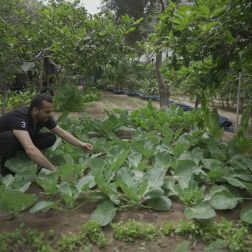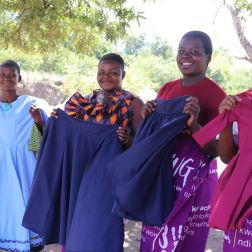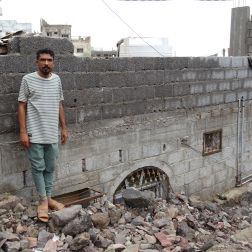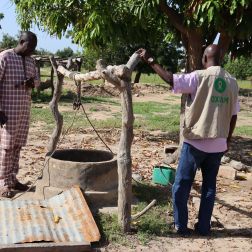- 4 mins read time
- Published: 14th April 2021
Born in Yemen in 2015, war is all he has ever known
“I don’t want to live in this place, I just want to go home.”
Six-year-old Omar* is tired. He’s tired of the wind, of the rain, of moving from one place to the next.
Born in Yemen in 2015, the year the war started, war is all Omar has ever known. Not long after his arrival, his family were forced flee their home in Nihm District, Sana’a Governorate.
“In 2015, we were living in security and stability in our villages, houses and farms,” says his 45-year-old father Salem*. “We used to grow crops and eat from that. Water supply was always provided by government. We got food from our own farms.
“I also had a monthly salary from the government. I used to work in the security department. Everything was just fine.”
Then the war started and everything changed.
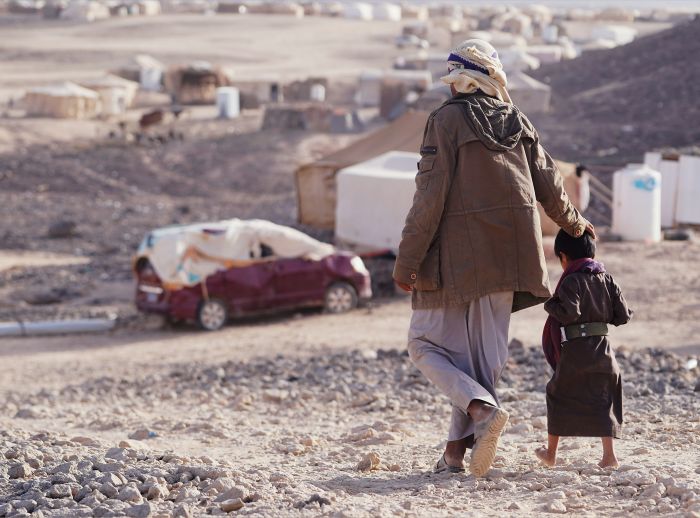
The family fled their village, leaving most of their belongings behind. For a while, they lived in caves and drank water from nearby ponds. They moved again – first to Alkhaniq camp, then to Algadaan, where they stayed for six months, until August 2020, before the conflict forced them to flee once more.
It is a difficult and uncertain life for a family already grieving the loss of a loved one. Salem’s third-oldest child, his 15-year-old son, was struck by a car and died in December 2020.
The family eventually moved to Alswidan camp, four to five days away by foot. “I didn’t have any vehicle to transport my children nor my stuff, so I had to send my children with other passengers separately,” said Salem.
“Our life nowadays in Alswidan camp is difficult because of the harsh climate and storms… When we first arrived here, we faced a strong storm which tore apart our tents and we were told that we will be given new tents.”
The family of seven live in a 12sqm tent. So far, there have been fires in six tents in the camp due to families having to cook inside their shelters. But there are other risks too, Salem explains.
People in the camp are always afraid of military actions that could hit them any time. We all live in anxiety… I live with fear about my family and my family sleep and wake up frightened. All families, not just my family.
Salem says that they have not received any food aid in more than a year. And water is limited. “Water supply is just 500 litres for each family no matter how big or small the family is,” he continues. Some people have animals to raise, I have a few goats which help me in my living.
“They provide us with only 500 litres of water for five or six days. Sometimes water supply is provided for two months and stopped for another month.
“As for the health services, we have a clinic that provides basic medicine only. One day, my youngest boy asked his brother to bring him some water to drink… The older boy gave him too much water until his lungs were filled with it. I took him to the clinics nearby but they couldn’t rescue him. So, I had to take him to a private hospital and I spent 48,000 YR (€160) in three days. I didn’t have that amount of money but his mother did have some jewellery.”
Salem wants a better future for his children. He wants them to have an education – something that they have missed out on in recent years – and to live in peace.
It’s what Omar dreams of too.
“When I grow up, I want to be a teacher so I can teach other children and go back home," he says. "We go back home and never have to leave it again. I don’t want to live in this place, I just want to go back home.”
*Names changed to protect identities.
